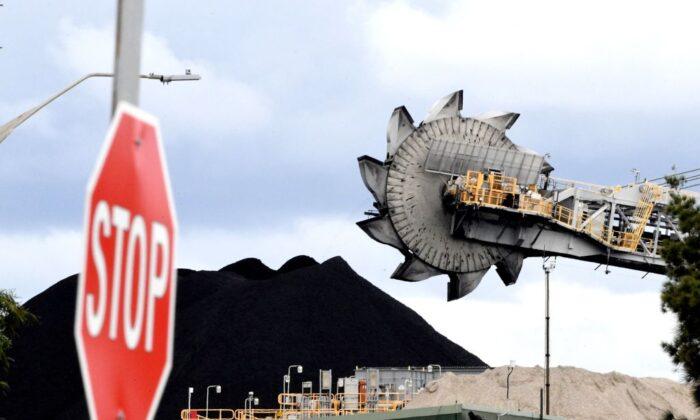Australia has recorded its 13th consecutive accounts surplus in the June quarter on the back of a continued commodity boom, with the trade surplus hitting a record high $43.1 billion (US$29 billion).
Global supply constraints drove up demand for Australian mining and agricultural commodities, driving up the exports of goods and services by 14.7 percent.
According to Newcastle coal, the benchmark for thermal coal in the Asia-Pacific region, the value of coal doubled over the 2021-22 financial year, ending at US$353 per tonne. It has since risen further to US$450 per tonne on Sept. 6.
Sarah Hunter, senior economist and partner of KPMG, said the improved trade balance wasn’t just about commodities.
Future of Coal Within the Energy Transition
Meanwhile, a new report by the Institute for Energy Economics and Financial Analysis (IEEFA) called on Australian governments to transition away from thermal coal despite the profitability.“Very high coal prices are a double-edged sword for the coal industry. At this stage of the energy transition, high prices will destroy long-term demand for coal even faster,” report co-author Andrew Gorringe said.
He noted that Australia’s traditional key export markets, namely Japan, South Korea, and Taiwan, were shifting away from reliance of imported thermal coal.
“Despite the recent rise in European imports of expensive Australian coal, the Russian invasion of Ukraine and the subsequent global energy crisis will only accelerate this transition,” report author Simon Nicholas said.
The report comes after Prime Minister Anthony Albanese told the resources sector that Australia would remain a “reliable provider of energy” as it worked with other nations to reduce emissions.
“In the same way, Australia will continue to be a trusted and stable supplier of energy and resources to our key trading partners.”






Friends Read Free